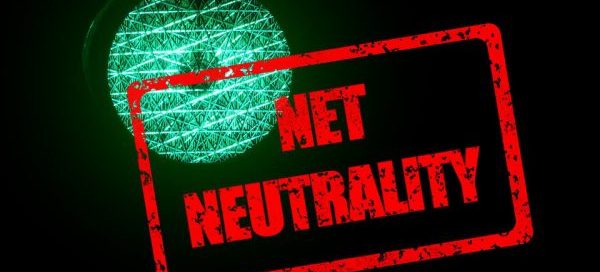
What is net neutrality and why is it important?
Net neutrality is the idea that all data must be treated equally on the Internet. The principle supports free speech on the Internet because it prevents Internet Service Providers (ISPs) from discriminating on speed or content. Supporters of this principle argue that without it, ISPs would be able to arbitrarily slow down or “throttle” traffic to competing services. They would also be able to load their own content quickly and charge high fees to other content. The argument is that this would create “tiers” on the Internet that would then be dominated by big companies.
How do the FCC rules affect net neutrality?
In early December 2017, the U.S. Federal Communications Commission (FCC) repealed regulations passed in 2015 to guarantee net neutrality. This was a highly controversial decision as evidenced by the over two million comments from the public the ruling received. Ajit Pai, FCC Chairman, arguing in favour of rolling back net neutrality rules, stated that: “This plan would simply restore the successful, light-touch regulatory framework that governed the Internet from 1996 to 2015. And importantly, it would get the government out of the business of micromanaging the Internet” (Restoring a light touch to FCC Internet regulation).
Broadband providers such as AT&T, Comcast, and Pai’s former employer Verizon, lobbied heavily to repeal the rules and stand to benefit greatly from being able to compete more freely and offer more tiered services. They argue that by limiting their profitability, it decreases their incentive to invest in their networks to the detriment of all U.S. Internet users.
The argument on the other side, is that without keeping these rules which level the playing field, big businesses would have a deciding say in which voices get heard. Startups especially are worried that the dominant players would be able to stifle startups that offer disruptive competitive services. Over 1000 startups and investors signed an open letter to Pai (Startups for Net Neutrality).
One of the main fears is that without these rules, ISPs would create a “fast lane” that only large companies would be able to afford. The argument is that this would, in effect, end democracy and free speech on the Internet. In her dissenting opinion, Jessica Rosenworcel, FCC Commissioner, argues that “They will have a right to discriminate and favour the Internet traffic of those companies with whom they have a pay for play arrangement and consign all others to a bumpy road” (What is net neutrality).
This does not appear to be the end of the story though as New York State Attorney General Eric Schniederman is leading a multi-state law suit against the FCC to repeal the new ruling. He states that: “These new rules will totally corrupt the Internet”. They are seeking a stay on the implementation of the new rules. There is likely to be a long drawn out court case to come.
Will this affect the Internet in Canada?
The dominance of U.S. content provider and Internet companies means that this move will likely create a ripple effect to other countries. To this effect, Canada’s Innovation Minister Navdeep Bains said in an email to the Toronto Star that: “Canada will continue to stand for diversity and freedom of expression. Our government remains committed to the principles of net neutrality" (Repeal of net neutrality in US could impact Canada).
However, there continues to be fear that if the U.S. regulations stand, Canada will have no choice but to follow its approach. One day we may wake up to an Internet where Bell offers a great deal for signing up to its own video services while Netflix simultaneously starts having performance problems. What seems certain is that whatever side of the debate you come down on, the Internet is likely to be a very different place without these restrictions.



